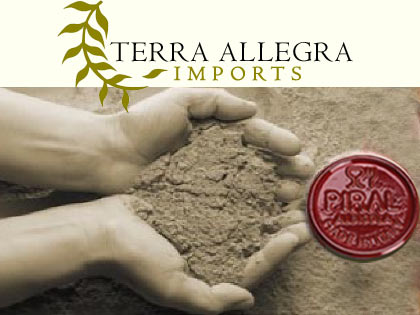Braised Baby Artichokes
4-5 baby artichokes, halved
3-4 cloves fresh garlic (bruised with the flat part of a heavy knife)
2 tablespoon onion diced
2 tablespoon fresh parsley chopped
3 tablespoons extra virgin olive oil (EEOV)
¾ cup dry white wine (dry red wine works well also)
¾ cup boiling water
sea salt, to taste
fresh ground black pepper, to taste
Pull off the first layer of the outer leaves of the artichoke, trim off the stem and cut off about 3/8” of the top. Trim the tips of the leaves revealed under the discarded outer leaves, cut in half along the stem line, wash in a bowl of water, allow to dry on a towel
Heat 3 tablespoons of EEOV in a 3 Quart Piral terracotta pan # TA241ROCRC
Add salt and fresh ground pepper to pan
Add finely diced onion, cook till almost translucent
Add fresh bruised garlic
Add the baby artichokes to the pan, cut side up
Add all white wine to pan
Add boiling water enough to cover the artichokes, reserve the remainder for use
Sprinkle 1 tablespoon of fresh chopped parsley on top
Cover and cook slowly at a very low heat for at least 1 1/2 hours
The artichokes should be covered by the braising liquid for the first 45-60 minutes of cooking time, add the remaining water as needed
At the 1 hour mark gently turn each artichoke half over so that the split side is down and continue cooking for the remaining time
Depending on the size and desired tenderness cook 15-30 minutes more if needed
Drizzile some additional EEOV after about 15 minutes before end of cooking time, taste one or two leaves and add sea salt and remaining chopped parsley as desired.
When done allow to stand for a few minutes before serving
Pull off and scrap the outer leaves with your teeth (it’s finger food) after the second or third layer of leaves is scraped this way, often they are tender enough to eat the remaining artichoke completely.
Health benefits of artichokes
(source: http://www.epicureantable.com/articles/aartichoke.htm)
Today we know that the artichoke is very high in fiber, potassium, calcium, iron, phosphorus and other trace elements important for a balanced system. It is known to positively help poor liver function (thus helping to lower the blood cholesterol), arteriosclerosis, gout, supports the treatment of hepatitis and improves the gall bladder function. It can slightly lower the blood sugar, improve the appetite and digestion, is diuretic and may help some migraine conditions (most especially those caused by toxins in the blood). As it helps the body rid itself of excess water and moves toxins it also has the added side effect of an improved skin luminosity.
